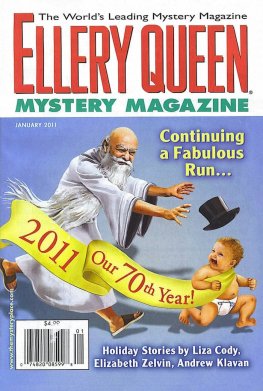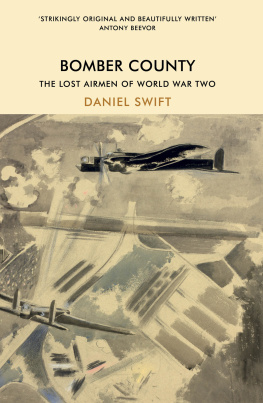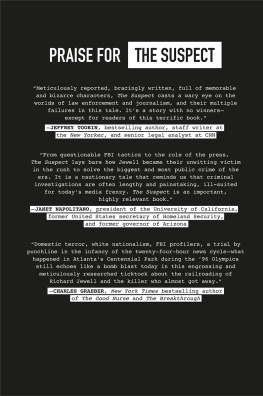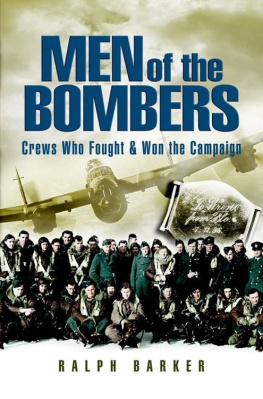The Bomber
Liza Marklund
Translated by
Kajsa von Hofsten
POCKET BOOKS
New York London Toronto
Sydney Singapore
This book is a work of fiction. Names, characters, places and incidents are products of the author's imagination or are used fictitiously. Any resemblance to actual events or locales or persons, living or dead, is entirely coincidental.POCKET BOOKS, a division of Simon & Schuster, Inc.1230 Avenue of the Americas, New York, NY 10020Visit us on the World Wide Web:http://www.SimonSays.comCopyright 1998 by Liza MarklundEnglish language translation copyright 2000 by Kajsa von HofstenPublished by arrangement with Bengt Nordin Agency, SwedenAll rights reserved, including the right to reproduce this book or portions thereof in any form whatsoever. For information address Pocket Books, 1230 Avenue of the Americas, New York, NY 10020Marklund, Liza, 1962[Sprngaren. English]The bomber / Liza Marklund; translated by Kajsa von Hofsten.p. cm.ISBN: 0-7434-1785-2I. Hofsten, Kajsa von. II. Title.PT9876.23.A653 S6313 2001839.73'74 dc21 00-065818POCKET and colophon are registered trademarks of Simon & Schuster, Inc.
PROLOGUE
The woman who was about to die stepped warily out of the doorway and quickly glanced about her. The stairwell behind her lay in darkness; she hadn't switched on the light on her way down. In her pale coat, she was a ghostly apparition in the shadows of the entryway. She hesitated before stepping out onto the pavement, as if suspecting she was being watched. She took a couple of quick breaths, and for a few moments the white mist of her exhalation hovered around her head like a halo. Then she straightened the strap of her shoulder bag and took a firm grip of the handle of her briefcase. With hunched shoulders, she walked toward Gtgatan, taking quick, quiet steps. It was bitterly cold; a biting wind cut through her clothes. She sidestepped an icy patch and for a second was balancing on the curb. Then she hurried away from the streetlight and into the darkness. The sounds of the night were muffled: the sighing of a ventilation system, the yelling of some drunken youths, a faraway siren.The woman's stride was confident and determined. She exuded assurance and expensive perfume. When her cellphone suddenly rang, she was completely taken aback. Freezing in mid-step, she quickly looked behind her. She bent down to lean the briefcase against her leg. While she rummaged in her handbag, her whole being positively oozed annoyance. She fished out her phone and put it to her ear. Despite the darkness and the shadows, her reaction could not be misjudged. Her irritation turned to surprise, then to anger, and finally, fear.When she finished the call, the woman stood still for a few seconds, phone in hand. She bent her head, seemingly lost in thought. A police car drove slowly past. The woman looked up at it, watchful, following it with her gaze. She made no attempt to stop it.Then she appeared to make up her mind. She turned around and started walking back the way she had come, past the dark doorway and up to the crossing at the corner of Katarina Bangata. While waiting for a night bus to drive past, she lifted her head and followed the street with her eyes, past Vintertullstorget and across Sickla Canal. Floating high above it lay the main Olympic arena, Victoria Stadium, where the Summer Olympics would open in seven months' time.After the bus passed by, the woman crossed Ringvgen and started walking along Katarina Bangata. Her face was expressionless; her hurried steps testified to how cold she felt. She took the footbridge across the canal and entered the Olympic compound via the media village. With sharp and somewhat jerky movements, she hurried toward the stadium. She chose the route along the water's edge, although it was a longer and colder walk: A freezing wind blew in from the sea. But she did not wish to be seen. She repeatedly stumbled in the dense darkness.When she reached the post office and the pharmacy, she turned up toward the training area and ran the last few hundred yards to the arena. By the time she reached the main entrance, she was out of breath as well as angry. She pulled the door open and stepped into the darkness."Tell me what you want, and be quick about it," she said with a cold look at the person who appeared from the shadows.She saw the raised hammer but had no time to be afraid.The first blow landed on her left eye.
EXISTENCE
Just behind the upper fence lay a huge anthill. As a child, I used to study it with utter concentration. I would stand so close that the insects were constantly crawling on my legs. Sometimes I followed a single ant from the grass in front of the house, across the gravel road, along the sandbank, and up to the anthill. There I would steel my gaze so as not to lose sight of the insect, but I always did. Other ants would catch my attention. When they became too numerous, my focus would splinter into so many pieces that I lost patience.
Sometimes I would put a lump of sugar on the hill. The ants loved my gift, and I smiled while they poured over it and pulled it down into the depth of the hill. In the autumn, when days grew colder and the ants slowed down, I would stir the hill with a stick to wake them up again. The grown-ups were angry when they saw what I was doing. They said that I was sabotaging the work of the ants and had ruined their home. To this day, I remember the feeling of injustice. I meant no harm. I just wanted a bit of fun. I wanted to rouse the little creatures.
My game with the ants haunted me in my dreams. My fascination turned into an unspeakable fear of their crawling. In my adult life, I have never been able to bear seeing more than three insects at a time, of whatever kind. As soon as I'm unable to take them all in, panic starts building up. My phobia came into being the moment I discovered the parallel between myself and the little insects.
I was young and still actively searching for answers to my condition, building theories in my mind, trying them out against each other in different problems I would formulate. That life could be arbitrary was not part of my worldview. Something had created me. I was not to be the judge of what that something was: chance, fate, evolution, or possibly God.
That life could be without meaning, however, I considered likely, and this filled me with sorrow and rage. If our time on earth had no purpose, then our lives appeared to be an exercise in irony. Someone put us here to study us as we made war, crawled around, suffered, and struggled. At times this Someone would confer a reward on us at random much like putting a lump of sugar on an anthill and watch our joy and despair with the same indifference.
My certainty grew with the years. In the end, I realized that it makes no difference whether there is a higher meaning to my life or not. Even if there is, I am not supposed to know of it here and now. If there were answers to be found, I would already know what they were, and since I don't, it makes no difference however much I think about it.
This has given me some measure of peace of mind.SATURDAY 18 DECEMBER
The sound reached her deep into a bizarre sex dream. She was lying on a glass stretcher in a space shuttle, Thomas on top of and inside her. Three presenters from the radio program
Studio Six were standing beside them and watching with vacant faces. She was desperate to go to the bathroom."You can't go now. We're on our way out into space," Thomas said, and she saw through the panoramic window that he was right.The second ring tore the cosmos apart and left her thirsty and sweating in the dark. She tried to focus on the ceiling above her in the gloom."Answer, for God's sake, before it wakes the kids!" Thomas grunted from among the pillows.She turned her head to look at the clock: 3:22. Her excitement was gone at a stroke. An arm, heavy with sleep, reached for the phone. It was Jansson, the night editor."Victoria Stadium has been blown up. There's one hell of a fire. The night reporter is there, but we need you for the early edition. How soon can you get there?"She took a breath, letting the information sink in, and felt the adrenaline course like a wave through her body and into the brain. The Olympic arena, she thought, fire, shit south of the city. The South Bypass or Skanstull Bridge."What's it like in town, are the roads okay?" Her voice sounded rougher than she would have wanted."The South Bypass is blocked. The exit next to the stadium has collapsed, that much we know. The South Tunnel may be cordoned off, so stick to the streets.""Who's shooting?""Henriksson has gone out, and the freelancers are already there."Jansson hung up without waiting for her to answer. For a few seconds Annika listened to the hum of the line before she dropped the phone onto the floor."What is it now?"She sighed inwardly before replying."Some explosion at the Olympic stadium. I've got to get over there. It'll probably take all day."She hesitated before adding: "And night."He mumbled inaudibly.Carefully she extricated herself from Ellen's sleepy embrace. She breathed in the smells of the child: the sweet skin, the sweat-dampened pajamas, the sour mouth where her thumb was always resting. She kissed her daughter's smooth head. The girl moved sensually, gave a stretch, then curled up into a ball; three years old and utterly self-possessed, even in sleep. With her heavy arm, she dialed the direct number to the taxi switchboard. She got out of the overpowering warmth of the bed and sat down on the floor."Could I have a car to 32 Hantverkargatan, please. Name of Bengtzon. I'm in a hurry To the Olympic stadium Yes, I know it's on fire."She was dying for a pee.
Next page










